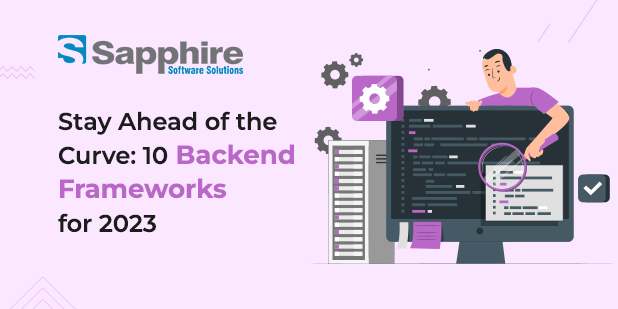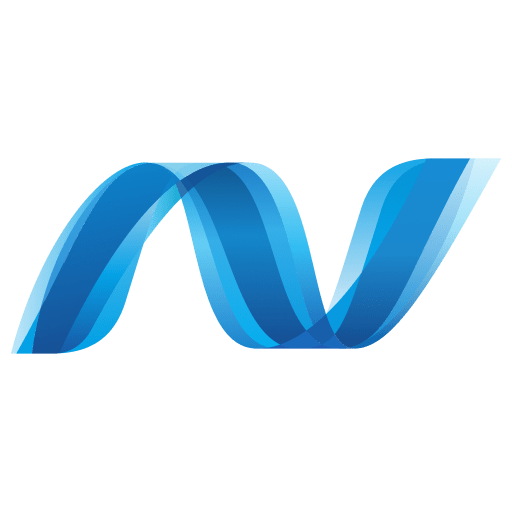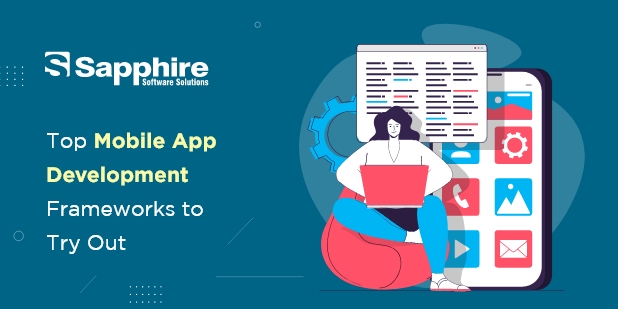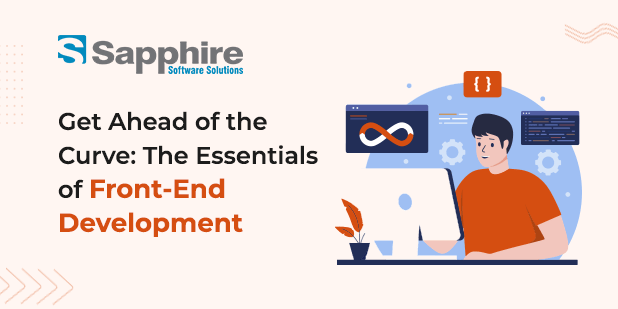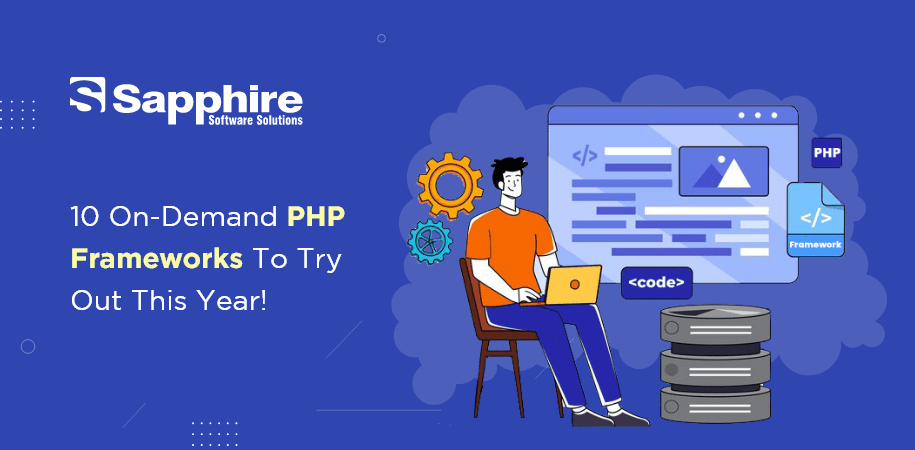It is essential to creating any online or mobile application and must be well-designed and scalable. Data administration, application logic, and security are all handled by the backend throughout the software development cycle. Choosing the best backend framework for your project might be challenging since many of them are available nowadays. The top ten backend frameworks for 2023 will be discussed in this blog. We will also offer a summary and list of the benefits of each backend framework so that you can choose the best one for your project.
What is Backend Frameworks?
A software framework known as a backend web framework offers a standardized method for developing and deploying web applications. It consists of a collection of libraries and tools that allow the creation of a distinctive, dependable, and scalable application.
Consideration of popular Backend Frameworks in 2023
There is no one-size-fits-all backend framework, which is the most crucial thing to keep in mind. Your demands and requirements will determine the best backend framework for your project. Today, there are several accessible backend frameworks. However, they will not all be present in 2023.
Here are our top recommendations for the best backend frameworks of 2023:
1. Laravel:
Laravel is a widely used PHP framework. It has a growing community and several features to aid in the development of quick and resilient apps. Laravel is an excellent choice if you are searching for a feature-rich and robust backend framework. It includes an HTTP middleware layer, ORM support, a template engine, and everything else required to get started. Additionally, Laravel makes it simple to add new features as your project evolves. It has a variety of capabilities, including routing, session management, database access, and templating. Check out Laravel Development Services.
Laravel for Backend Frameworks: Benefits
Due to its simplicity of use and solid capabilities, Laravel, a PHP backend framework, has grown in popularity in recent years.Â
- – Laravel makes it simple to structure your code and maintain the integrity of your project. This may make your project simpler to manage and grow in the future.
- – Laravel has several built-in features, like authentication, authorization, caching, and database migration. This may save you time and effort while constructing your project.Â
- – Laravel’s documentation makes it simple to get started and understand the framework. Additionally, a big community of Laravel developers is available to answer queries and give assistance.
2. Ruby on Rails:
Ruby on Rails is a famous framework that facilitates the creation of high-quality web applications rapidly and straightforwardly. It includes robust rules that simplify development and excellent tools for creating complex applications. It is renowned for its use and convenience. In addition, it has a strong developer community that may provide help and guidance. It is an excellent option for small to medium-sized applications that need clean, maintainable code.
Benefits of using Ruby on Rails:
Ruby on Rails is a Ruby-based web application framework. It is intended to simplify the development of web apps by assuming what every developer needs to get started.
- – Unlike many other frameworks and tools, it enables you to write less code while doing more.
- – It dramatically accelerates the development process. This is because its approach prioritizes convention over configuration, removing the need for developers to spend time setting files.
- – Because gems (libraries) can be readily incorporated into Rails apps, they significantly save development time.
- – Another significant benefit of utilizing Ruby on Rails is that it is simple to learn, even for novice programmers. Rails adhere to the MVC (model-view-controller) design, simplifying code structure. Additionally, a vast community of Ruby on Rails engineers is always prepared to assist novices.
3. Django:
Django is a high-level Python web framework that facilitates quickly building scalable and secure websites. It is now one of the most popular frameworks and will probably remain so in 2023.
Django contains many built-in capabilities, such as an Object Relational Mapper (ORM) for database interactions, template engines for producing HTML pages, and form-handling facilities. Django is also ideal for developing RESTful APIs. Django is also very scalable, which makes it an excellent option for big projects. Click on the Best Django development company in India.
The benefits of using Django:
Using Django for web development has several benefits, some of which are given here.
- – Python-based Django is a free and open-source web framework. It adheres to the MVT (model-view-template) architectural paradigm.
- – Django is speedy. It can manage massive volumes of traffic and data.
- – Django is protected. It has a robust security mechanism that protects against typical online threats.
- – Django is extensible. It may be used to construct vast and intricate websites.
- – Django is simple to learn and utilize.
4. ASP.NET Core:
ASP.NET Core is an open-source, cross-platform framework for developing contemporary online applications. It offers good support for hosting on the Microsoft Azure cloud platform and is quick and adaptable.
The benefits of ASP.Net:
ASP.NET is a popular framework for backend development that allows developers to build sophisticated online applications. Here are some of the benefits of ASP.NET:
- – ASP.NET offers a comprehensive collection of controls and frameworks that may be used to develop robust online applications.
- – It is straightforward to understand and use due to its well-defined object-oriented programming paradigm.Â
- – ASP.NET permits more coding freedom, as developers may select from various programming languages (such as C# and VB.NET) while working with the framework.
- – The ASP.NET runtime environment is highly scalable and deployable on several platforms, including Windows Server and Azure cloud services.
- – The ASP.NET framework incorporates security, making it suitable for designing secure online applications.
5. Spring:
For developing web applications, the Spring backend framework is an effective tool. It is user-friendly and rich in features, making it a perfect option for developers.
Benefits of utilizing Spring:
Using Spring for backend development has several benefits, including:
- – Spring is a general framework that is used by several huge businesses. This indicates that a vast community of developers can assist you with any difficulties.
- – Spring provides a rich set of tools and frameworks for backend development, making creating complex applications more straightforward.
- – Spring is meant to be very modular, allowing easy addition or removal of features as required. This makes it very versatile and adaptable to your requirements.
- – Spring provides good interaction with various frameworks and technologies, facilitating the development of hybrid applications.
- – Spring’s documentation and support are superior, making it easy to learn.
6. ExpressJS:
Express is a lightweight web application framework for Node.js that offers a variety of capabilities to facilitate the creation of web apps with speed and ease. The framework is intended for the development of scalable and rapid web applications. It has robust support for routing, middleware, and template engines, which makes it excellent for developing complicated applications. Express offers a vast array of out-of-the-box capabilities, including support for routing, middleware, and templates.
Advantages of Express.js use:
When creating an online backend application, there are several benefits to using Express.js, including:
- – Express.js is fast and lightweight, making it perfect for applications that manage vast volumes of traffic or data processing.Â
- – Express.js has a powerful routing system and support for many template engines (such as Jade). This makes development quicker and easier since you do not need to configure these functionalities manually.
- – Express.js is very extensible, so you can add unique functionality or even design your Express-based framework (such as MEAN). This allows you to adjust Express to your demands, increasing the overall efficiency of your development process.
7. Symfony:
Another popular framework for creating web apps is Symfony. It provides a rich collection of database management, caching, and security capabilities. Additionally, Symfony has a big developer community that contributes bundles and extensions to the framework. Checkout, Best Symfony Development Services in India
The benefits of using Symfony:
Using the Symfony framework for backend development has several benefits.
- – It is very stable and well-documented. In addition, a big community of users and developers is also available to answer queries and assist.
- – Symfony interfaces nicely with various tools and frameworks, making it simple to create sophisticated applications.
8. Zend:
Zend Framework is a full-stack web application development framework. It comprises database management, session administration, caching, and authentication components. The Zend Framework also supports A/B testing and internationalization.
The benefits of using Zend:
I am using Zend as your backend framework has many benefits. Zend is designed on top of the PHP programming language, which implies that developers with PHP knowledge can rapidly learn how to use it. In addition, Zend offers some advantages over other popular backend frameworks, like Laravel and Ruby on Rails.
Among the primary benefits of using Zend are the following:
- – Outstanding performance: Zend is built to provide exceptional performance, making it suited for extensive and sophisticated applications.
- – Flexible design: The flexible architecture of Zend enables you to modify and enhance its capabilities to meet your requirements.
- – Robust security: Zend includes various security tools, like input filtering and output escaping, to make your application safe.
- – As one of the most popular PHP frameworks, Zend has a sizable and active community that can give support and help when required.
9. Flask:
Another prominent open-source framework meant to be lightweight and adaptable is Flask. Flask may not have as many built-in capabilities as Django, but installing third-party extensions to get the desired functionality is simple.
Use of a Flask Has Benefits:
There are several reasons why Flask is an excellent option for backend development, but the following are the most significant:
- – Flask’s templating language is solid and easy to use, enabling you to design large web apps with minimum codeÂ
- – Flask has good documentation, making it simple to learn and useÂ
- – Flask is supported by an active community of developers who are always willing to assist
10. CakePHP:
CakePHP is one of the most popular web development backend frameworks. It is an open-source framework that facilitates rapid website and application development.
The benefits of utilizing CakePHP:
CakePHP offers many benefits, including:
- – Cakephp’s extensive array of built-in capabilities may save you much time and work throughout the development process. It provides, among other things, tools for input validation, database access, session management, etc.
- – CakePHP has good documentation, making it simple to learn and use.
- It is built on the Model-View-Controller (MVC) architectural paradigm, which aids in keeping code modular and structured.
- – CakePHP facilitates the creation of custom URL routes, which may enhance the SEO of a website or application.
- – CakePHP is compatible with various database management systems, such as MySQL, MariaDB, SQLite, etc.
You can hire backend developers from us, who always use cutting-edge frameworks to develop apps. As a mobile app development company, you can rely on us for world-class app development services at the most affordable rates. Contact us to get a free quote!Â



















